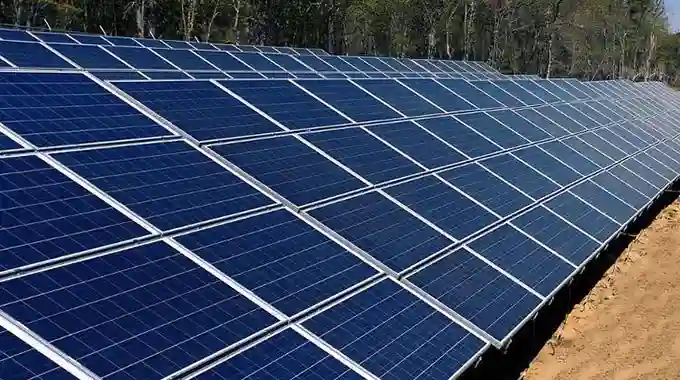The Zimbabwe Energy Regulatory Authority (ZERA) has urged corporates to consider net metering in their 2024 strategy as this will reduce their electricity bills, reported The Sunday News.
ZERA said in addition to cutting costs, net metering will also allow businesses to reduce their carbon footprints.
Net metering is a billing arrangement to encourage the adoption of renewable energy sources, particularly solar power by electricity consumers.
It enables individuals or businesses with solar panels or other forms of distributed energy generation to connect to the electrical grid and receive credits for the excess electricity they produce.
In Zimbabwe it is being implemented through Statutory Instrument (SI) 86 of 2018 and its amendment SI 38 of 2022 for Solar Systems that are 5 megawatts (MW).
In a presentation unpacking the net metering system at the 9th edition of the CEO Africa Annual Roundtable in Victoria Falls on Thursday, ZERA Renewable Energy Engineer, Engineer Tobias Mudzingwa:
Zimbabwe has an abundant solar photovoltaic (PV) energy resource which is largely untapped and underutilised.
The country is committed to the revised Nationally Determined Contribution (NDC) target of 40 percent per capita emissions reduction across all sectors of the economy below the projected business-as-usual scenario by 2030.
Net metering reduces daytime load shedding as well as electricity imports. Net metering saves energy which can otherwise be channeled to other productive sectors of the economy such as industry and mining.
The increased implementation of net metering will go a long way in accelerating energy transition and help the country to meet its climate change goals.
He said through the net metering system, ZETDC earlier this year started purchasing surplus solar power from households and businesses.
Mudzingwa revealed that the total cumulative installed capacity for the 145 connected points was 8.869 MW as of end of September 2023,
The capacity was distributed as 6.949 MW from commercial which was 78 percent and 1.920 MW from domestic 22 percent. He added:
The utility is currently processing 97 applications that is 8.9 MW pending. The net metering operational aspects include the compensation factor of 0.8 for domestic customers and 0.85 for maximum demand time of use customers.
This provides for the utility network use charges. The accrued energy credits are to be rolled over only for a period to be determined by the authority from time to time as opposed to perpetual rollover.
The connection fees are determined by the power utility subject to ZERA approval.
Here’s how net metering typically works:
- A consumer installs solar panels or another type of renewable energy system on their property, such as wind turbines or hydroelectric generators. These systems generate electricity for their own use.
- The consumer’s renewable energy system is connected to the electrical grid, allowing them to draw electricity from the grid when their system doesn’t produce enough power.
- When the consumer’s renewable energy system generates more electricity than they need, the excess electricity flows back into the grid. This surplus electricity is measured by a bi-directional meter.
- The utility company credits the consumer’s account for the surplus electricity they export to the grid. This credit is usually based on the retail rate of electricity, which is the same rate that the consumer would pay for the electricity if they were drawing power from the grid.
- When the consumer’s renewable energy system doesn’t generate enough electricity to meet their demand, they can draw electricity from the grid. In this case, they use the credits accumulated from the surplus electricity they previously exported.
- At the end of a billing period (usually monthly), the consumer is billed for the net electricity consumed. If they consumed less electricity than they exported, they may only have to pay for the portion they used beyond what they generated. If they exported more electricity than they consumed, the excess credits may carry over to the following billing period or be compensated by the utility under the specific net metering policy.
More: Pindula News

